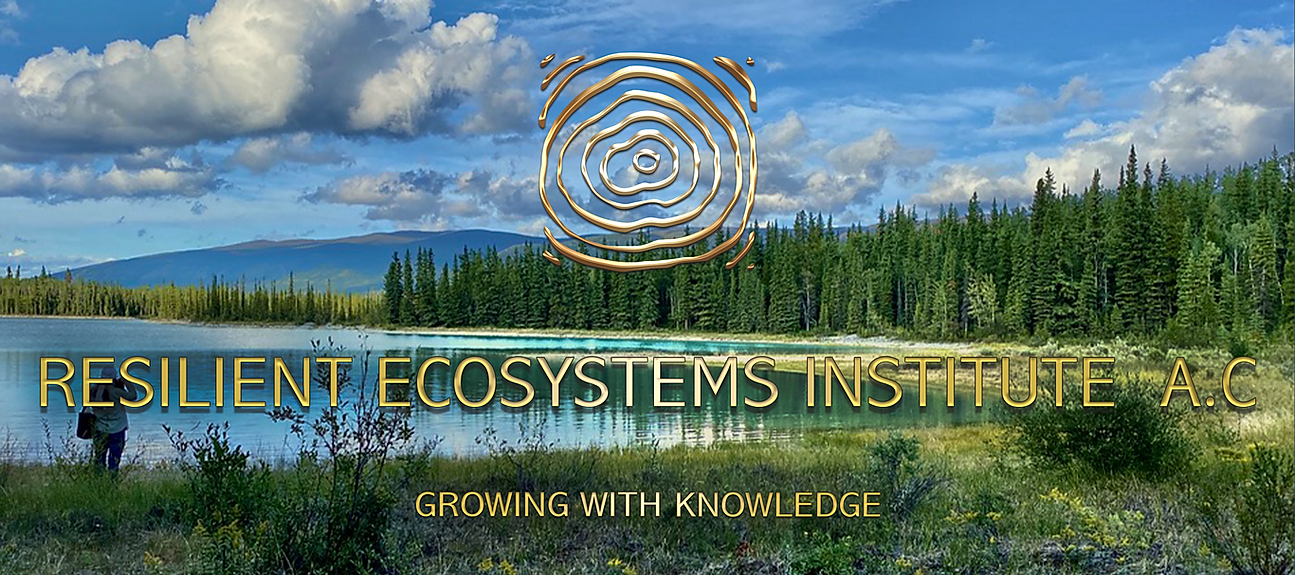

Ecosystem Restoration Community Internships &
Research Opportunities



Swimming in the cenote daily!


Resilient Ecosystems Institute A.C.
Conduct Cutting-Edge Research at Resilient Ecosystems Institute
The Resilient Ecosystems Institute (REI) is a non-profit research institute situated within a 39-hectare tropical forest reserve in Mexico's Yucatan Peninsula. We offer unparalleled research opportunities for qualified researchers and interns in restoration ecology, conservation biology, and regenerative agriculture.
Join a Collaborative Research Community
At REI, we cultivate a collaborative and supportive research environment. You'll have the chance to work alongside experienced researchers and fellow students on projects that demonstrably impact tropical ecosystem conservation.
Research Focus at Resilient Ecosystems Institute A.C.
At Resilient Ecosystems Institute A.C., we foster a culture of scientific inquiry and collaboration, inviting students and researchers to join us in our mission to advance ecological restoration and biodiversity conservation. Our research initiatives encompass a wide range of topics, addressing pressing environmental challenges and exploring innovative solutions. Here are some of the key research areas and projects we are currently focused on:
1. Developing Monitoring Protocols for Ecosystem Restoration Projects:
- Our research aims to assess and refine monitoring protocols to establish a robust and flexible system for evaluating the effectiveness of large-scale restoration projects.
- We utilize advanced techniques such as GIS, eDNA analysis, acoustic monitoring, and microbiome analysis to gather comprehensive biodiversity and ecosystem health data.
- By field-testing these protocols and comparing their effectiveness, simplicity, and cost-effectiveness, we seek to provide valuable insights for landowners and conservation organizations participating in the emerging biodiversity credit market.
2. Microbiome Biodiversity and Its Impact on Ecosystem Health:
- We investigate the relationship between microbiome biodiversity in soils and plants and its influence on ecosystem succession, resilience, and human health.
- Our research explores the direct correlation between microbiome diversity and human health outcomes, shedding light on the importance of preserving biodiversity for both environmental and public health reasons.
3. Synergies Among Aquatic Communities and Ecosystem Restoration:
- We examine the interconnectedness of salt marshes, mangroves, seagrasses, and coral reefs, emphasizing the need for holistic restoration efforts to maximize ecosystem resilience and function.
- By studying the relationships between these aquatic ecosystems, we aim to develop strategies that promote synergistic restoration approaches and enhance overall ecosystem health.
4. Identification of Key Species for Ecosystem Restoration:
- Our research focuses on identifying key species that play a crucial role in supporting biodiversity and accelerating ecosystem restoration processes.
- By creating a global species database and evaluating their restoration potential, we aim to shift restoration practices towards prioritizing high-biodiversity species for maximum ecological impact.
5. Rapid Restoration Techniques for Tropical Ecosystems:
- We explore innovative techniques for rapidly restoring tropical ecosystems using local species and indigenous knowledge.
- Through field experiments and collaboration with local communities, we aim to develop efficient restoration methods that enhance biodiversity, ecosystem services, and carbon sequestration.
Research Focus for the Next 3 Years - Paul Morris:
- Our lead researcher, Paul Morris, spearheads efforts to confront the challenges of ecological restoration in the face of the current ecological crisis.
- With a focus on tropical ecosystems, Paul's research aims to develop rapid restoration techniques, monitor ecosystem services, evaluate key performance indicators, and promote biodiversity-centric restoration practices.
Acknowledgements:
- We extend our gratitude to all ecosystems that inspire our research endeavours, as well as to the educators, species, and communities that contribute to our understanding of the natural world.
Collaboration and Partnership:
- We welcome collaboration and partnership from researchers, students, and organizations dedicated to advancing ecological restoration and biodiversity conservation.
Ecological Restoration Frontiers:
- As we venture into the frontiers of ecological restoration research, we embrace multidisciplinary approaches and innovative solutions to address the complex challenges facing our planet.
Join us in our quest to restore and preserve Earth's ecosystems for future generations.
Examples:
Ant biodiversity research
Undergrad thesis
Research Opportunities Await
We provide a diverse range of research opportunities for students and researchers at all stages of their careers. You can develop your own research project or collaborate with us on ongoing initiatives.
Facilities and Support Provided
REI equips its researchers with access to a suite of facilities and support services, including:
-
On-site laboratory and research facilities
-
Shared eco-lodge accommodations
-
Meals prepared with fresh, local ingredients
-
Field equipment and supplies
-
Guidance and mentorship from experienced researchers
Applying to REI
We welcome applications from qualified researchers and interns with a passion for tropical forest conservation.
Additional Information
-
Minimum stay: 1 month
-
Location: Yucatan Peninsula, Mexico
-
Amenities: Off-grid living with solar and wind power, cenote for swimming and diving, hiking trails, proximity to Mayan villages
We look forward to your application!
Longer Stays Cost / Month
Short Term Campers (30-60d) 590 Euro
Long Term Campers (60d+) 530 Euro
Restoration Trainees (3-4m) 530 Euro
Researchers 530 Euro
Investigadores mexicanos 100 peso por día para la comida, sin coste de alojamiento, 5000 pesos al completar el papel y la copia enviada a nosotros.
Shorter Stays, please see our Ecotourism Page
Interns see our page on our partner's site Ecosystem Restoration Communities
applications
click here
applications
click here
applications
click here

